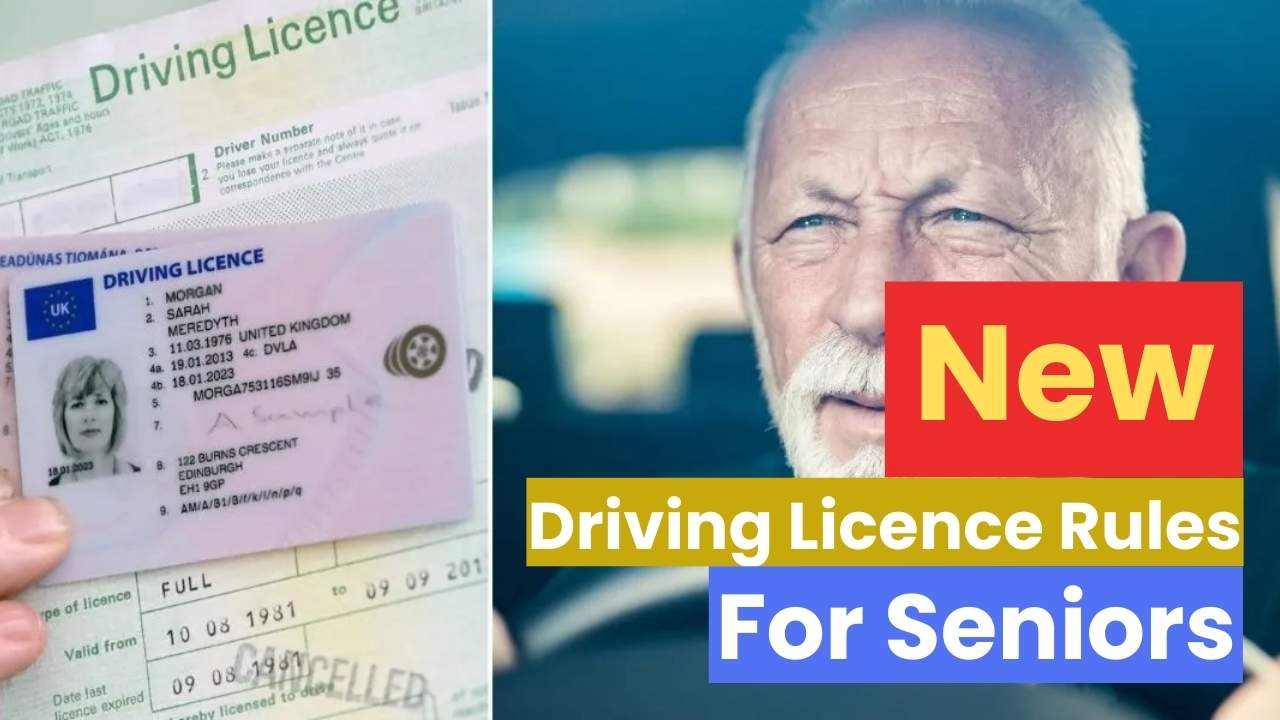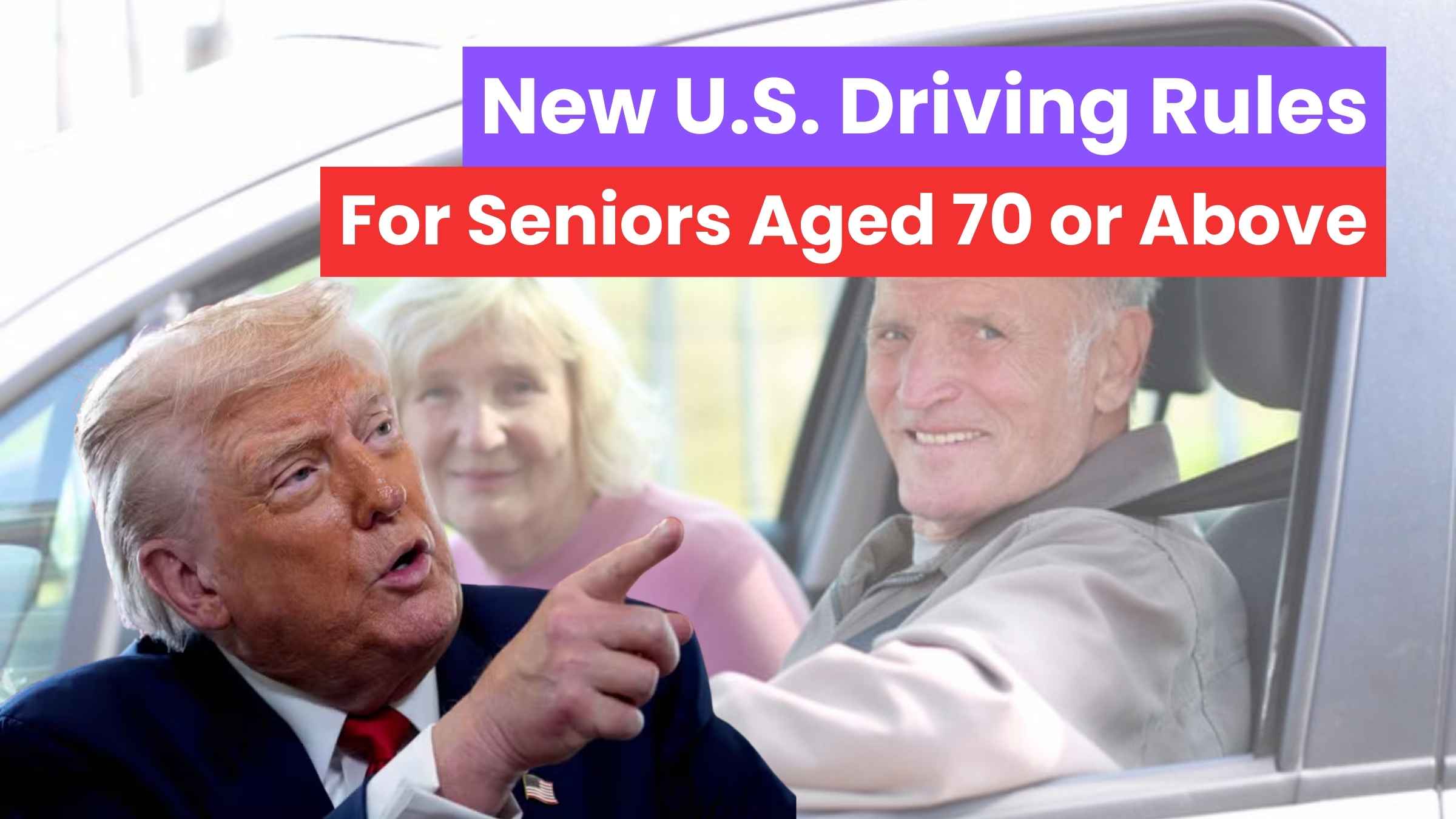As of September 2025, there may official changes to the UK’s driving license rules for seniors aged 70 and above. The Driver and Vehicle Licensing Agency (DVLA) continues to operate under the existing framework, which requires drivers to renew their licenses at age 70 and every three years thereafter.
The current system relies on self-certification of medical fitness, and there are no mandatory health checks or cognitive assessments required. Check out all about this New UK Driving Licence Rules for Seniors Aged 70 or Above from the post below.
The Truth Behind UK New Driving Licence Rules
As of September 2025, UK drivers aged 70 and above must still renew their licences every three years through self-certification of medical fitness. No official mandatory health or cognitive checks are in place yet. Proposals for stricter rules are still under DVLA review.
The government has discussed introducing new measures such as medical exams, vision checks, and possible driving assessments for high-risk seniors. These steps aim to balance road safety with independence. However, such rules are not yet confirmed as law.
For now, elderly drivers only need to ensure timely renewals and declare themselves fit to drive. Preparing medical records and having regular health checks can make the process smoother. Official updates will be published by the DVLA once changes are approved.
Current Official Rules (As of September 2025)
- Renewal at 70
- Your driving licence expires when you turn 70. To continue driving legally, you must renew your licence.
- Ongoing Renewals
- After your 70th birthday, you must renew your licence every three years.
- Self-Declaration
- The current system relies on you self-certifying that you are medically fit to drive when you renew your licence.
- No Mandatory Health Checks
- There are no mandatory health checks or changes to UK driving licence rules for drivers aged 70 or above as of September 2025.
What’s Causing Confusion?
There are discussions and proposals to introduce mandatory medical assessments for drivers aged 70 and over, which could include health checks, vision, and cognitive screening.
These proposals, however, were still under review by the Driver and Vehicle Licensing Agency (DVLA) in July 2025 and have not been implemented as new rules as of September 2025.
Key Changes in Licence Renewal For Aged 70+
Want to what are the new changes, the check out all the points below.
Mandatory Medical Assessments
Previously, drivers could self-certify their medical fitness. Under the new rules, all drivers aged 70 and above must undergo a medical examination conducted by a registered healthcare professional. This assessment will include:
- Vision Test – To ensure drivers meet the required eyesight standards.
- Cognitive Evaluation – Assessing memory, attention, and decision-making abilities.
- General Health Review – Including checks for conditions like diabetes, heart disease, and neurological disorders.
The results must be submitted to the DVLA as part of the licence renewal process.
Vision Standards
Drivers must now provide proof of a recent eye test. They must be able to read a standard number plate from 20 metres. Those who wear corrective lenses or have had eye surgery may need to supply additional documentation. Failure to meet these vision standards could result in a driving ban.
The Times
Licence Renewal Period
While the licence must still be renewed every three years after age 70, the process now involves stricter checks. Online renewals remain the fastest option, but medical documentation must be submitted and reviewed by the DVLA. This could include further requests for evidence or even driving assessments for high-risk cases.
Driving Assessments for High-Risk Drivers
Not every senior will need a practical test, but the DVLA can require one if medical reports or driving history indicate potential risk. These assessments evaluate reaction time, awareness, and vehicle control, providing reassurance for families and other road users.
Why Are These Changes Being Implemented?
The government aims to balance independence with safety. Statistics show that age-related health conditions, slower reflexes, and vision issues can increase accident risk.
By introducing mandatory checks, the DVLA hopes to detect problems early, ensuring only medically fit seniors remain on the road. With the growing number of drivers over 70 in the UK, these updates are designed to prevent accidents while supporting continued mobility.
Impact on Seniors and Families
While some may see these changes as restrictive, they also provide reassurance. Seniors can feel confident that their driving ability has been verified, and families can rest easier knowing loved ones are safe behind the wheel.
However, those unable to meet the new standards may need to explore alternatives such as public transport, community transport schemes, or family support.
Insurance Considerations
Insurance providers may adjust premiums based on medical declarations or driving assessments. Some companies may require proof of fitness before renewing policies, while others could offer discounts for seniors who complete voluntary driving courses. It’s important for older drivers to compare policies and explore senior-friendly options.
Driving in UK’s at 70+ Renewal System
As of September 2025, the UK’s driving licence rules for seniors remain the same as they have been, requiring renewal every three years after age 70, with the current requirement to self-certify fitness to drive.
There have been no official announcements of mandatory health checks or changes to UK driving licence rules for drivers aged 70 or above. Understanding the requirements, keeping medical documents ready, and renewing licences on time will help elderly drivers navigate these changes confidently.












